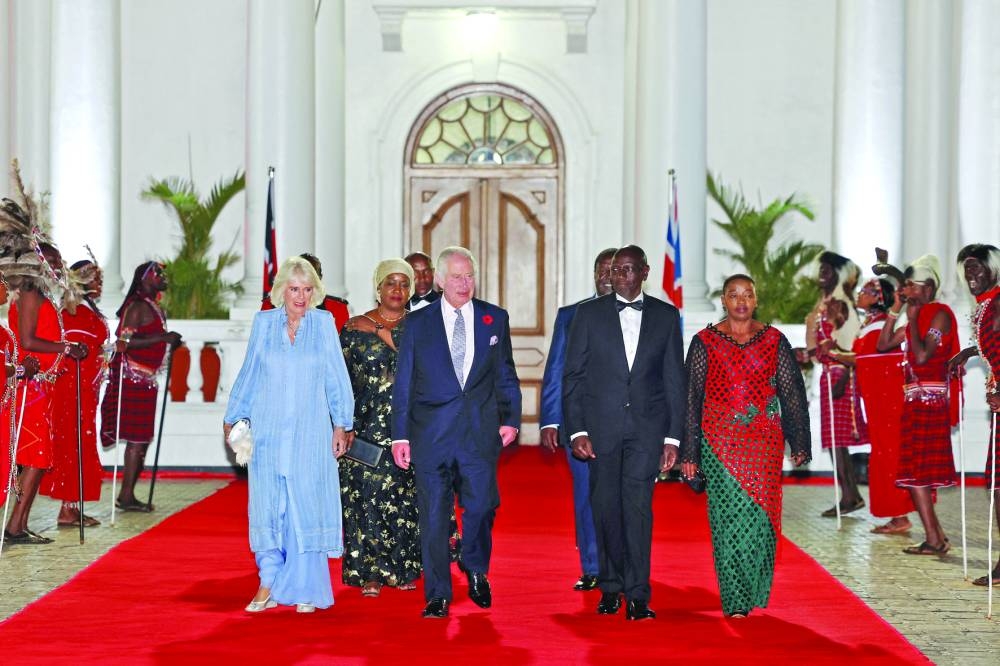King Charles said on Tuesday he felt the “greatest sorrow and deepest regret” for atrocities suffered by Kenyans during their struggle for independence from British colonial rule.
But in a speech at the start of a four-day state visit to Kenya, he stopped short of making a full apology called for by survivors of that period and local rights groups who are pressing for reparations from the British government.
“The wrongdoings of the past are a cause of the greatest sorrow and the deepest regret,” Charles said during a state banquet.
“There were abhorrent and unjustifiable acts of violence committed against Kenyans as they waged...a painful struggle for independence and sovereignty — and for that, there can be no excuse.” Many citizens of former British colonies, including leaders of Kenya’s Nandi people, want Charles to directly apologise and endorse reparations for colonial-era abuses, including torture, killings and expropriation of land, much of which remains in British hands.
During the 1952-1960 Mau Mau revolt in central Kenya, some 90,000 Kenyans were killed or maimed and 160,000 detained, the Kenya Human Rights Commission (KHRC) has estimated.
Britain has previously expressed regret for those abuses and agreed a £20mn ($24mn) settlement in 2013.
President William Ruto praised Charles for his courage and readiness “to shed light on uncomfortable truths that reside in the darker regions of our shared experience”.
“The colonial reaction to African struggles for sovereignty, and self rule was monstrous in its cruelty,” Ruto said.
But he added: “While there has been efforts to atone for the death, injury, and suffering inflicted on Africans by colonial government, much remains to be done in order to achieve full reparations.”
Charles said he wanted during his trip to deepen his understanding of the wrongs and to meet some of those affected.
While still heir to the throne, Charles surprised many at last year’s summit of the Commonwealth — a voluntary association of countries that evolved from the British Empire — by acknowledging slavery’s role in the organisation’s roots.
Mwangi Macharia, the head of the African Centre for Corrective and Preventive Action, a human rights group, said Britain should follow the example set by Germany, which has apologised for its abuses in Namibia, and agreed to fund projects worth over a billion euros.
Nandi King Koitalel Arap Samoei led a decade-long rebellion until he was killed by a British colonel in 1905. In the ensuing years, the British confiscated most of his people’s land and cattle.
Samoei’s great-grandson Kipchoge araap Chomu credited the British with contributions to Kenya like education and public health systems but said historical injustices must be remedied.

Queen Camilla, King Charles III, William Ruto, President of Kenya, and Rachel Ruto, First Lady of Kenya are seen before a State Banquet hosted by President Ruto at State House, along with distinguished guests from Kenya and the United Kingdom in Nairobi, on Tuesday.
